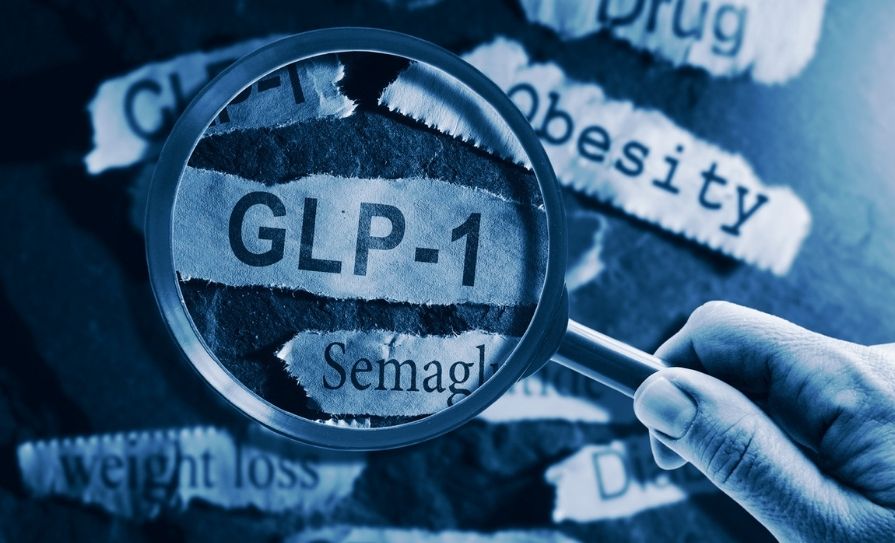Over 10,000 unauthorised GLP-1 ‘patches’ among items detained in ongoing enforcement T action, with sample patches tested found not to contain semaglutide
The Health Products Regulatory Authority (HPRA) recently reported that 382,395 dosage units of falsified and other illegal medicines were detained between January and June 2025. Recent detentions include sedatives, anabolic steroids, erectile dysfunction medicines, and more than 10,000 unauthorised GLP-1 patches claiming to contain semaglutide or tirzepatide. The HPRA is reminding the public that purchasing prescription medicines from unregulated sources means you can’t be sure what you’re getting.
In the first six months of 2025, the most significant categories of illegal products detained included sedatives (30 per cent), anabolic steroids (16 per cent), erectile dysfunction medicines (16 per cent), GLP- 1 products, (6 per cent), and analgesics (5 per cent). The breakdown, with comparisons to the previous six-month period (July-Dec 2024), is as follows:
- Sedative medicines – 114,916 units detained (65,913 units in H2 2024).
- Anabolic steroids – 62,751 units detained (42,981 units in H2 2024).
- Erectile dysfunction medicines – 60,184 units detained (46,658 units detained in H2 2024).
- GLP-1 products – 11,350 units detained (716 units detained in H2 2024).
- Analgesics – 17,454 units detained (17,074 units detained in H2 2024).
A total of 11,350 GLP-1 type medicines were detained, including products promoted as containing semaglutide, liraglutide or tirzepatide. Authorised GLP-1 prescription-only medicines are intended for specific medical purposes, such as diabetes or weight management under certain conditions.
While 533 of the detained products included unauthorised tablets, pens and vials containing powder or clear liquid, the HPRA also detained a further 10,817 transdermal delivery microneedle patches. It is claimed these patches contain semaglutide or tirzepatide. The online promotion of these unauthorised products, an emerging trend identified in early 2025, make claims as to HPRA approval as well as endorsement from national charities, hospitals and individual healthcare professionals. All these claims are untrue. Microneedle patches containing semaglutide, tirzepatide or any GLP-1 type medicine are not available as approved medical treatments. Results from recent HPRA testing of a sample of these transdermal patches found that they did not contain semaglutide, despite the claims made in their promotion and packaging.
Cyber interventions
As part of its enforcement remit, the HPRA continues to monitor and disrupt online activity promoting unapproved medicines, medical devices, and cosmetics. With 2,820 websites, webpages, e-commerce listings and/or social media pages amended or shut down in the first six months of 2025, cyber interventions for the first six months of 2025 have already surpassed the whole of 2024 (2,553). These actions include the removal of approximately 263 Shopify product listings, 30 Facebook profiles, and 689 Facebook adverts featuring spurious claims relating to medicines, medical devices and cosmetics, with some using the HPRA logo to falsely claim featured products were endorsed by the HPRA.
Gráinne Power, Director of Compliance at the HPRA, highlighted the ongoing detentions of illegal and unauthorised medicines and emphasised the serious risks they pose to the public.
“We remain deeply concerned by the risks that consumers are taking when they attempt to obtain illegal medicines online and from other unregulated sources. There has been notable increase in the prevalence of unauthorised GLP-1 products claiming to contain semaglutide, liraglutide or tirzepatide. These include unauthorised tablets, pens and vials as well as the growing trend of transdermal patches. While unauthorised patches we sent for testing did not contain semaglutide as was claimed, you simply don’t know what you are purchasing. These products are not authorised medicines, have no proven efficacy, and should not be used under any circumstances.”
Serious threat
In conclusion, Ms Power stressed that “prescription medicines obtained online or from unregulated sources may be counterfeit, falsified or contaminated. These factors pose a serious threat to the health of anyone who uses them. The HPRA strongly advises the public to safeguard their health by only using prescription medicines under the guidance of a qualified healthcare professional and by sourcing products authorised for the Irish market from a registered pharmacy.”
The HPRA works in close co-operation with colleagues from An Garda Síochána and Revenue’s Customs Service. There continues to be significant inter-agency collaboration to combat the illegal supply of health products into and within Ireland. The HPRA also supports prosecutions brought by the Director of Public Prosecutions in relation to the illegal supply of medicines. Additionally, the HPRA co-operates and shares intelligence with other regulatory and law enforcement agencies across Europe and worldwide to prevent the illegal manufacture, importation and distribution of medicines, medical devices, and cosmetics.
The HPRA welcomes reports of suspicious activities linked to the supply of medicines and other health products at reportacase@hpra.ie or at 01 634 3871.







